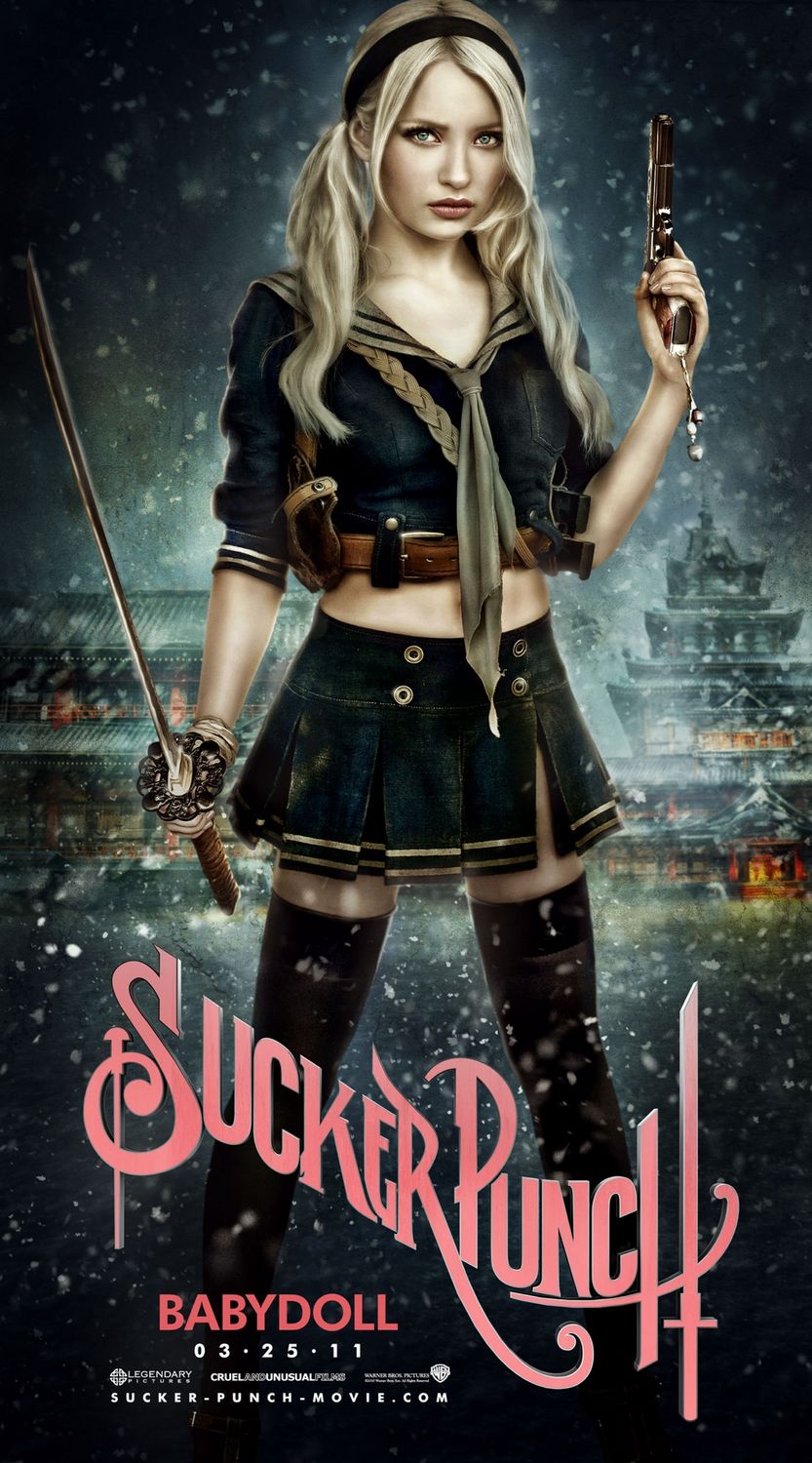Date Posted: April 8, 2011
Print Edition: April 8, 2011
By Joel Smart (Sports Editor) – Email
 Girls in skimpy outfits kicking ass; advertisements for Sucker Punch made it look like a Charlie’s Angels remake from 300-director Zack Snyder. The look is classic Snyder, with graphic novel-esque eye candy on the screen at all times; the dialog is expectedly cheesy at points, not surprising, but there is something quite different about this film than any other action film I’ve ever seen. Though on the surface Sucker Punch might look like it’s about killing a dragon, or escaping a mental institute, it’s really about tackling the very objectification of women that brought many into the audience in the first place.
Girls in skimpy outfits kicking ass; advertisements for Sucker Punch made it look like a Charlie’s Angels remake from 300-director Zack Snyder. The look is classic Snyder, with graphic novel-esque eye candy on the screen at all times; the dialog is expectedly cheesy at points, not surprising, but there is something quite different about this film than any other action film I’ve ever seen. Though on the surface Sucker Punch might look like it’s about killing a dragon, or escaping a mental institute, it’s really about tackling the very objectification of women that brought many into the audience in the first place.
Perhaps the name of the film was the biggest clue that the film would offer something worth far more critical analysis; the film intentionally displays each of the lead characters as victims of sexual abuse, right before the audience sees them compelled to act sexy for unnamed men. The purpose seems evident – Snyder attracted to his film those who were most interested in such objectification, only to draw those very intentions into question.
The film begins with the story of a brave young girl named Baby Doll (Emily Browning) as her life is quickly derailed by an evil, money-hungry stepfather who tries to rape her after her mother’s death left her the fortune. When she protects herself, he kills her younger sister. To silence her, he uses his powerful connections to lock her away at a mental institution called the Lennox House. A bribed orderly forges a signature to authorize a lobotomy that would keep her quiet for good. It’s at this point where things get really tricky as Baby Doll uses numerous, often otherworldly fantasies through which to orchestrate her escape. It’s gorgeous to watch, as she defeats dragons, Nazis, and chain-gun wielding samurai giants. The effects feel like an evolution of The Matrix, with super-slow motion and incredible camera angles as bullets whizz by.
However, each step into and out of fantasy causes the story to lose any sense of flow. It’s jarring – purposefully so, in fact – as it jumps between different layers of the symbolic worlds. It quickly abandons any sense of genre, style, or the expected rules followed by most films. Though its experimental nature will likely turn many viewers off, it is clearly intentional and necessary for its ultimate message.
There is fierce debate over whether the film is feminist, or faux-feminist, and both sides have merit. Ultimately, Sucker Punch succeeds not so much in empowering women as it does in forcing an audience to become self aware of their participation in objectifying women, a distinctly feminist goal.
The film was made by a man, and it is largely aimed at men. It’s imperative to keep this in mind when you watch it, because although that seems like a non-feminist perspective initially, it presents several male characters in various stages of harming women and asks them which one men in the audience want to be. And that’s just it, we’re watching her dance, we’re enjoying the action – we are the objectifier all along. We become the final boss that must be defeated. For a man who came to the film to enjoy objectifying women, this is a realization that might just hit him like a sucker punch – right when he wasn’t expecting it.
Just like in Chris Nolan’s Inception, which also contains layers of fantasy, Sucker Punch ends by turning the fantasy back over to the viewer. It reminds them that this fantasy of theirs is why the whole thing happened.
Though the film can be interpreted differently, it speaks to the quality of the film that when we came for the mindless fantasy and visual splendor, it can get us thinking pretty deeply about some real issues that can’t be ignored.


